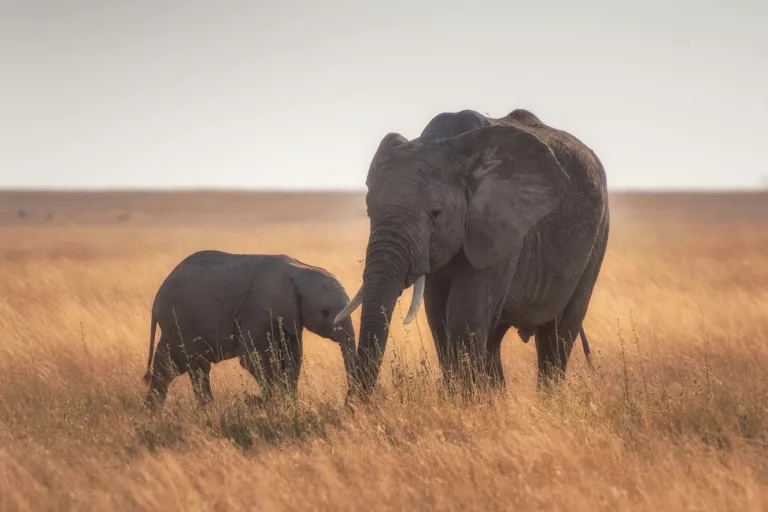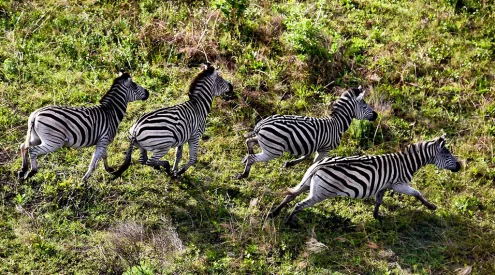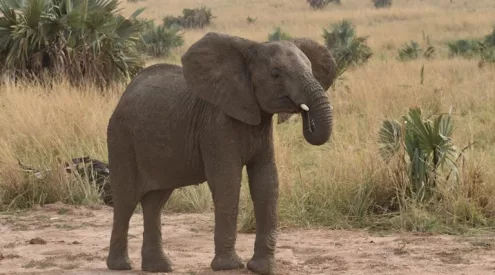
A new study published on Monday has revealed that African elephants may call each other by name, similar to humans.
This discovery positions elephants alongside humans as the only known species to use arbitrary vocalisations to label and address each other, rather than relying on imitation.
Researchers from an international team, including lead author Michael Pardo from Colorado State University, utilised artificial intelligence algorithms to analyse the calls of wild African savanna elephants in Kenya’s Amboseli National Park and Samburu National Reserve.
These calls, recorded over several decades, unveiled fascinating insights into elephant communication.
“Not only do elephants use specific vocalisations for each individual, but they recognise and react to a call addressed to them while ignoring those addressed to others,” Pardo explained. This indicates that elephants can determine the intended recipient of a call purely by its sound, showcasing a sophisticated level of cognitive ability.
The study, published in Nature Ecology & Evolution, involved analysing 469 distinct calls, identifying 101 calling elephants and 117 receiving them. Elephants produce a range of sounds, from loud trumpeting to low-frequency rumbles, the latter often being inaudible to the human ear.
Names were typically used in long-distance calls, particularly when adult elephants addressed younger members of the herd. The research indicated that the ability to use names might take years to develop, as adults were more likely to use names than calves.
Using a machine-learning algorithm, the researchers could correctly identify the recipient of a call 27.5% of the time based on the acoustic features alone. This percentage, while seemingly modest, was significantly higher than random chance, suggesting specific acoustic markers within the calls.
The study’s findings were further supported by playback experiments.
When recordings of calls directed at specific elephants were played back to them, the elephants responded more energetically to their own ‘names’ than to calls intended for others. This demonstrated that elephants recognise when they are being addressed by their individual calls.
The study also noted that the use of individualised calls could be linked to the complex social structures of elephant herds.
Elephants maintain lifelong bonds and often need to communicate with members of their herd who are out of sight. The researchers suggested that the need for individualised calls might have driven the evolution of vocal learning and abstract thinking in elephants, paralleling the development of language in humans.
While the study confirmed the use of names, it also raised new questions. Researchers have yet to determine whether different elephants use the same names for the same individuals or if they have unique names for each other. Additionally, isolating the specific elements of the calls that function as names remains a challenge.
Pardo emphasised the potential for further research, stating, “Understanding how these calls contain a name could open up many new areas of inquiry into elephant communication and cognition.”
This discovery not only sheds light on the intricate social lives of elephants but also highlights the remarkable cognitive abilities of these ‘gentle giants’.


















